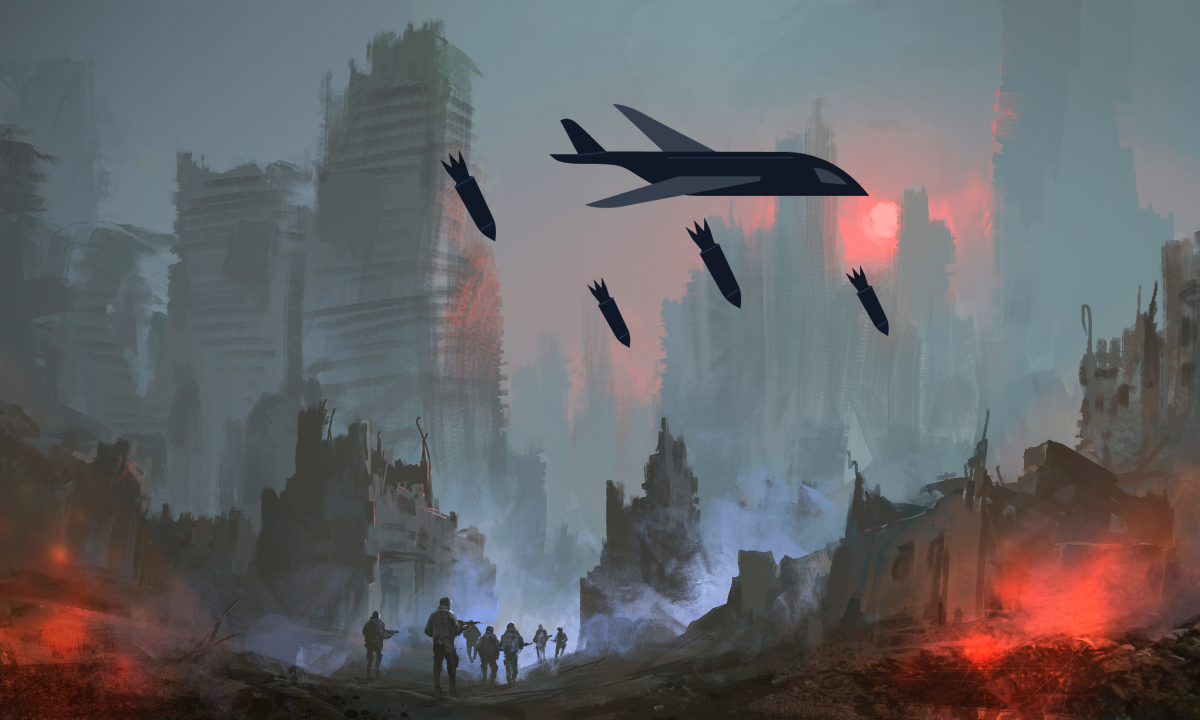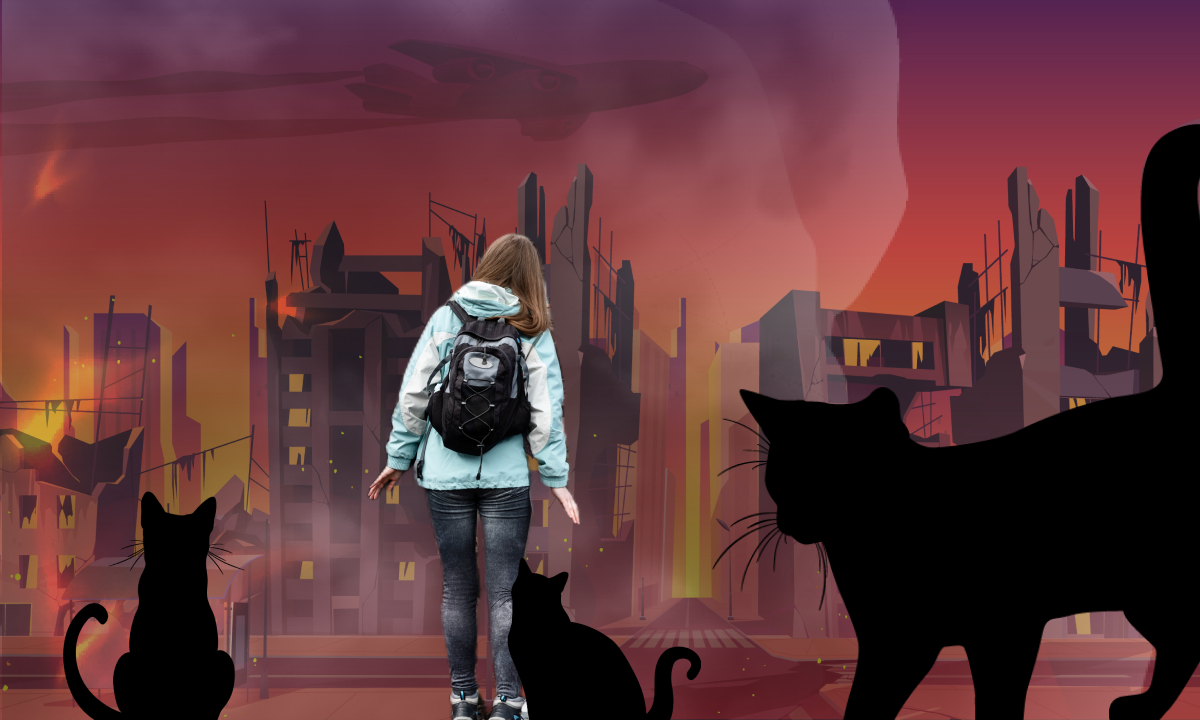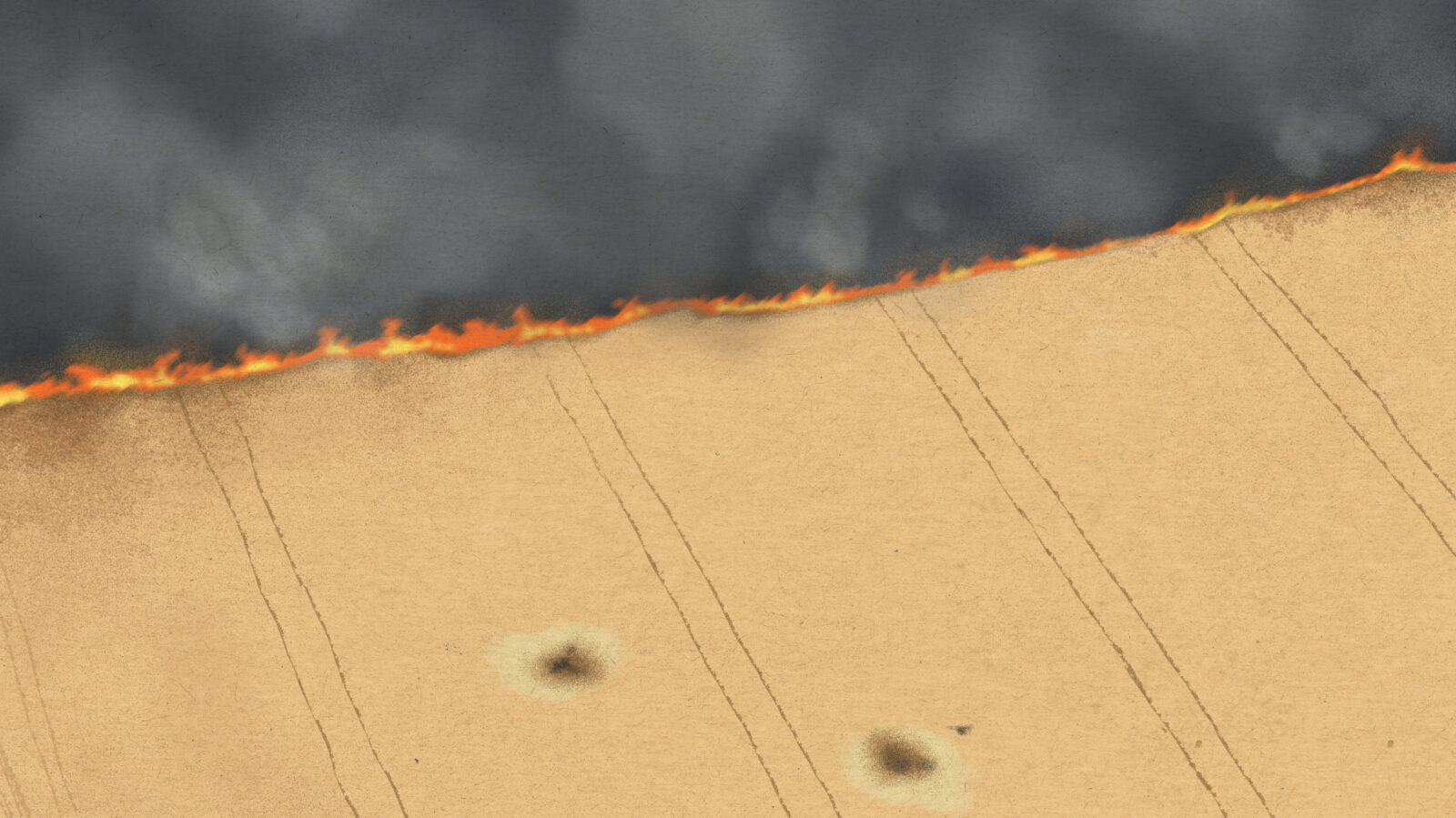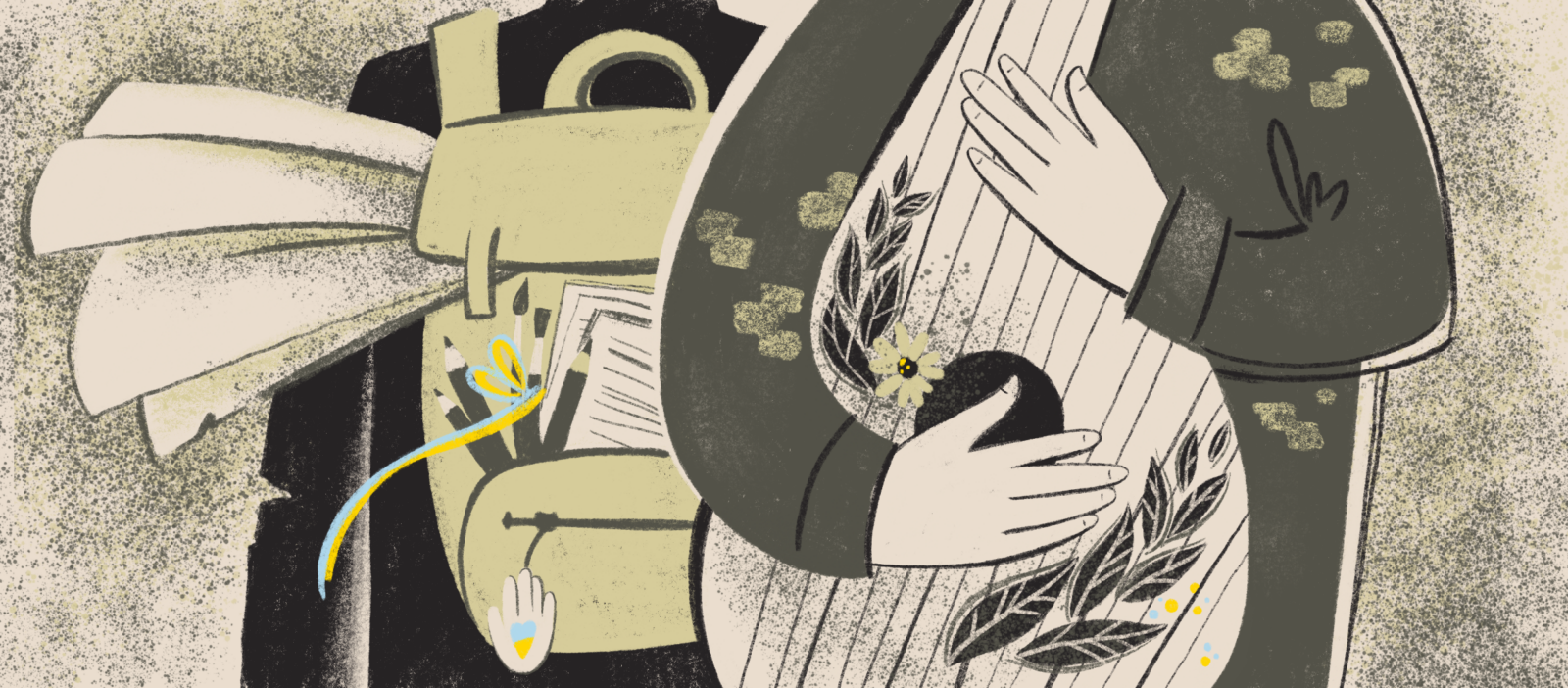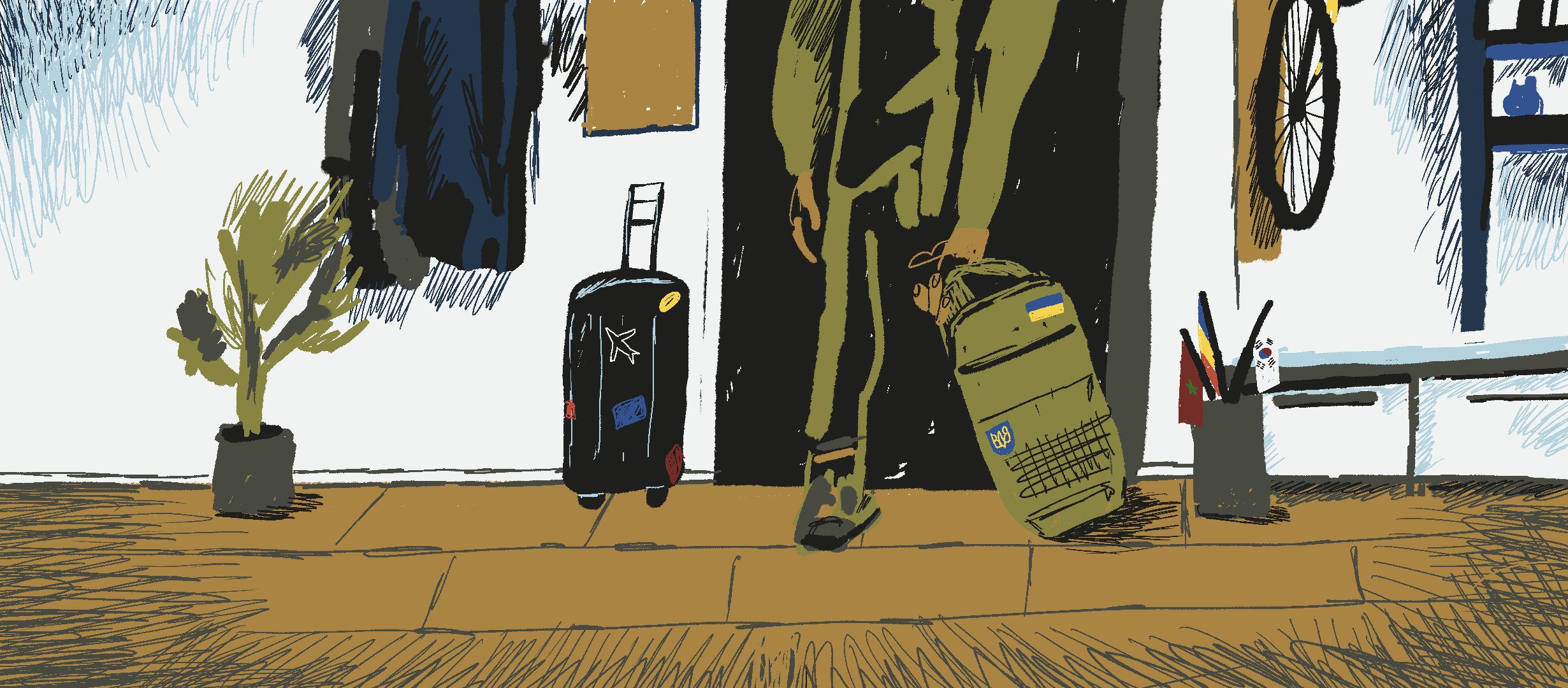Illustrated by Katalina Maievska
“He said that I am too sassy. He asked what I would say if he shot my Dad in the knees,” Tamara Shevchuk, a 26-year-old artist, recalls her meeting with the Russian military who had occupied her village, Shevchenkove, in Kyiv Region. “I answered, ‘Why my dad’s? If you are talking to me, then shoot me. He didn’t know how to respond, so he returned my car keys and left. They left our place empty-handed. When they came earlier, I gave them all the cereal we had and told them to take it and go away.”
At the beginning of April Shevchenkove, where Tamara and her family live, was liberated from occupation. We are talking to her after this happened.
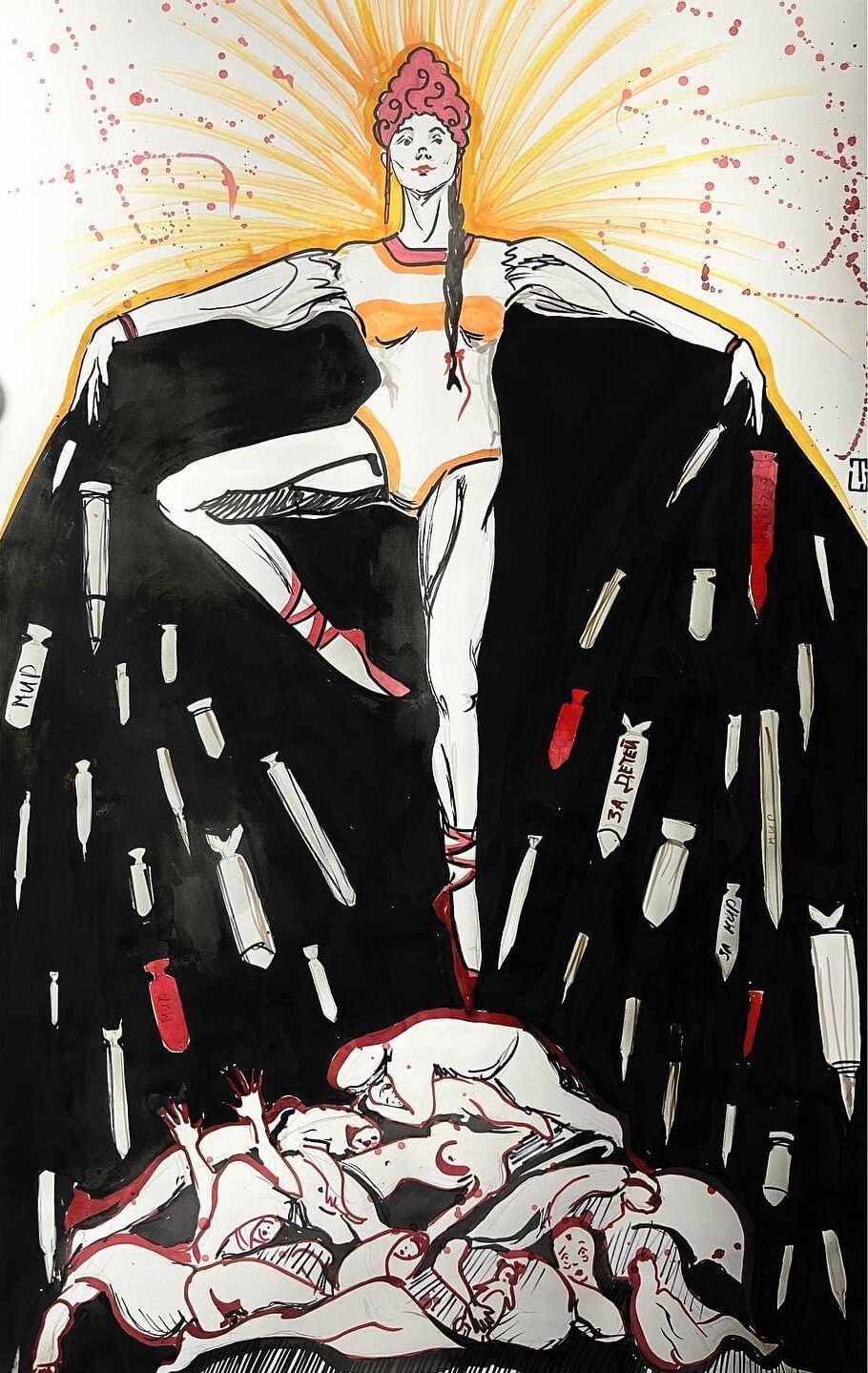
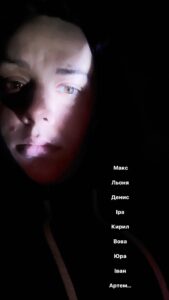
Tamara’s building is located at the edge of the village, and the Russian military didn’t reach it right away. At first, the Russians occupied the central streets. There they entered random buildings and took whatever they wanted. They could shoot any of the locals if they felt like it.
Tamara counts the victims she knows about:
“A married couple who used to sell food were killed in their car. A hunter was shot. One guy was found in the village center without his head and with his hands tied. Some girls were raped.”
After the village was liberated from Russian occupation, the Kyiv Region Police reported that six murdered men with signs of torture on their bodies and gunshot wounds to the head were carried out of one of the basements in this village. All these tortured men were civilians.
Tamara’s parents and a friend with her child stayed in her house. The friend’s husband was in the military, he was killed on the battlefield in the east of Ukraine.
The occupiers came to Tamara’s house twice. The first time was when the residents were hiding in the basement. The Russians were amazed when they saw their modern home appliances. They were especially impressed by their new car. Tamara didn’t argue and gave them the keys. They just took a ride like kids. For some reason, all they took from the artist’s house were New Year’s lights, aroma sticks, a pink backpack and some cheap fake jewelry. There was expensive jewelry around the house, too, but it wasn’t taken.
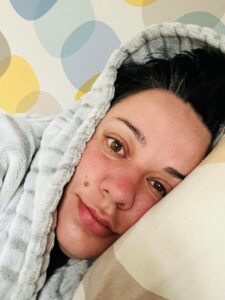
The Russian soldiers were arrogant, they wanted the locals to be afraid of them and respect them. They got aggressive when they didn’t get what they wanted. They also often placed their artillery in Tamara’s yard.
“On the fourth day a set of howitzers came in. They were placed in the field by the houses to be able to fire in different directions. I went outside to cook a meal, but after seeing this, I told everyone to get into the basement. As soon as we got there, shooting started. It was seven hours of constant firing.”
An evacuation corridor was supposed to open during this particular shooting. The Russians fired at it and blew up three cars. That was the reason why Tamara and her family didn’t consider the chance to get out through the “green corridor”: they realized that it was too risky. They decided to stay and act according to the situation.
They had to start a fire outside to cook meals and keep the fire burning for half the day. They fed their cattle during explosions. To get distracted, they played board games sometimes.
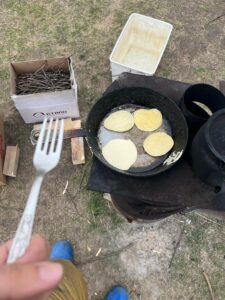
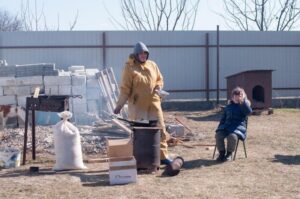
Tamara has been an active volunteer since 2014: she buys equipment for the army. If the Russians learned about this, they would probably treat her worse. That is why the artist dug a hole and buried all her gratitude letters and evidence of her volunteer work in advance.
In her regular life, Tamara teaches art to children. She works from home. She also paints and sells her paintings. She could have left to work from any other part of the world, but she didn’t because her homeland was here, she was sure of it. Still, she dreams of traveling after the war. But her dream for the nearest future is to take a bath. The water and power supply hasn’t been restored yet.
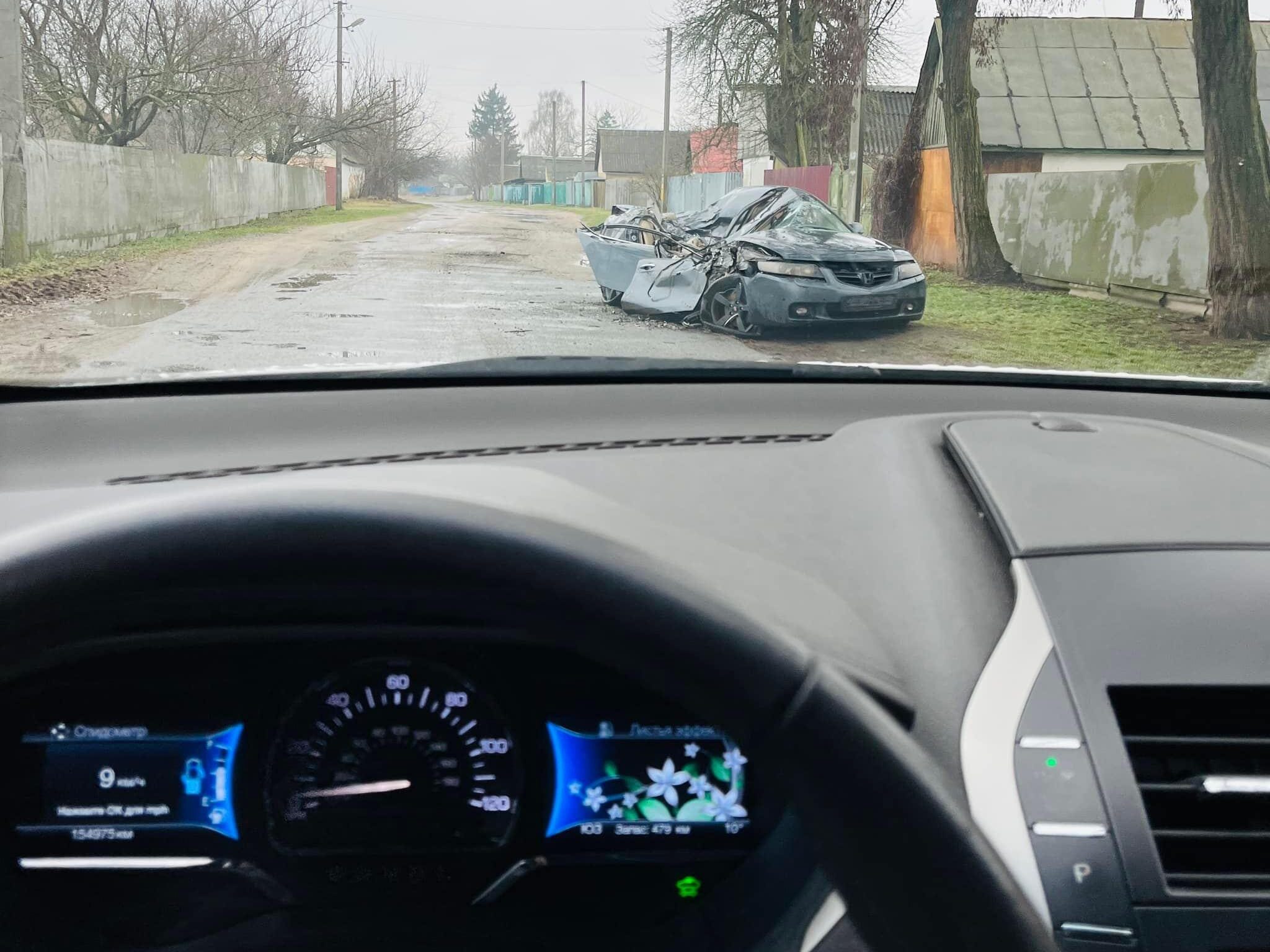
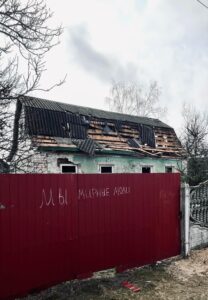
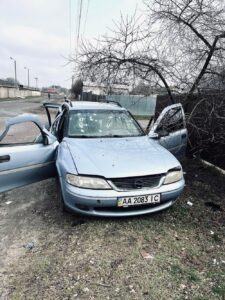
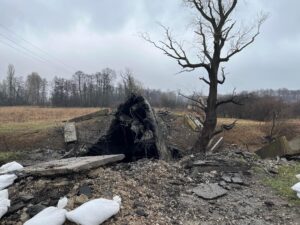
Translated by Oksana Mekheda





